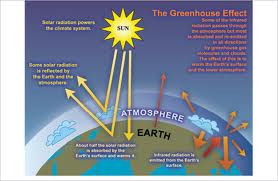According to the New York Times, a small group of scientific dissenters has been trying to shoot holes in the prevailing science of climate change, offering one reason after another why the outlook simply must be wrong. But, polls say 97 percent of working climate scientists now see global warming as a serious risk. The skeptics have seized on one last argument that cannot be so readily dismissed, namely the theory that clouds will save us.
The scientific majority believes that clouds will most likely have a neutral effect or will even amplify the warming, perhaps strongly, but the lack of conclusive proof prevails. “Clouds really are the biggest uncertainty,” said Andrew E. Dessler, a climate researcher at Texas A&M. “If you listen to the credible climate skeptics, they’ve really pushed all their chips onto clouds.”
Richard S. Lindzen, a professor of meteorology at the Massachusetts Institute of Technology, is the leading proponent of the view that clouds will save the day. His stature in the field — he has been making seminal contributions to climate science since the 1960s — has amplified his influence. He says the earth is not especially sensitive to greenhouse gases because clouds will react to counter them, and he believes he has identified a specific mechanism. On a warming planet, he says, less coverage by high clouds in the tropics will allow more heat to escape to space, countering the temperature increase.
At gatherings of climate change skeptics on both sides of the Atlantic, Dr. Lindzen has been treated as a star. During a debate in Australia over carbon taxes, his work was cited repeatedly. When he appears at conferences of the Heartland Institute, the primary American organization pushing climate change skepticism, he is greeted by thunderous applause.
While the scientific majority acknowledges that the lingering uncertainty about clouds plays into the hands of skeptics like Dr. Lindzen, they say that he has gone beyond any reasonable reading of the evidence to provide a dangerous alibi for inaction. Dr. Lindzen is “feeding upon an audience that wants to hear a certain message, and wants to hear it put forth by people with enough scientific reputation that it can be sustained for a while, even if it’s wrong science,” said Christopher S. Bretherton, an atmospheric researcher at the University of Washington. “I don’t think it’s intellectually honest at all.”

